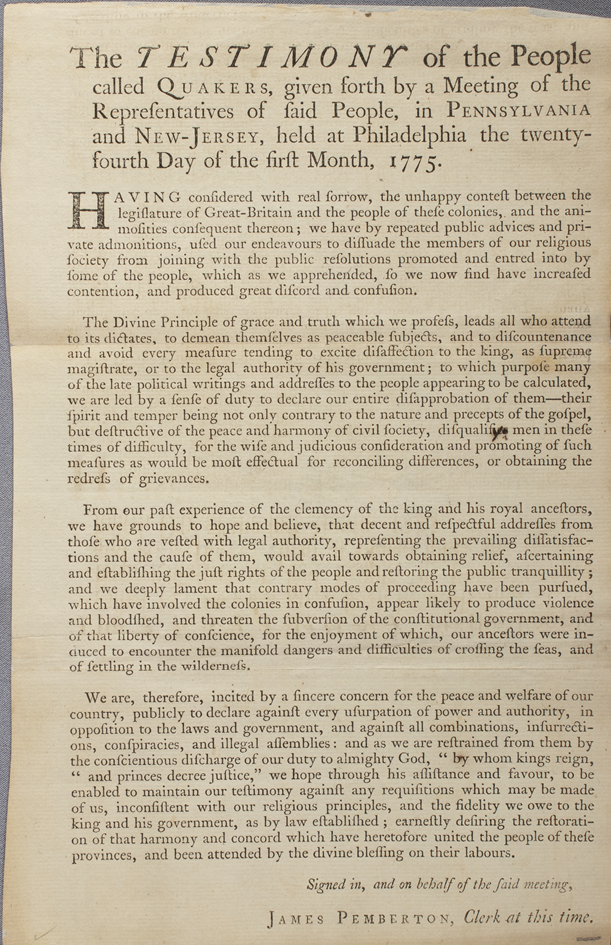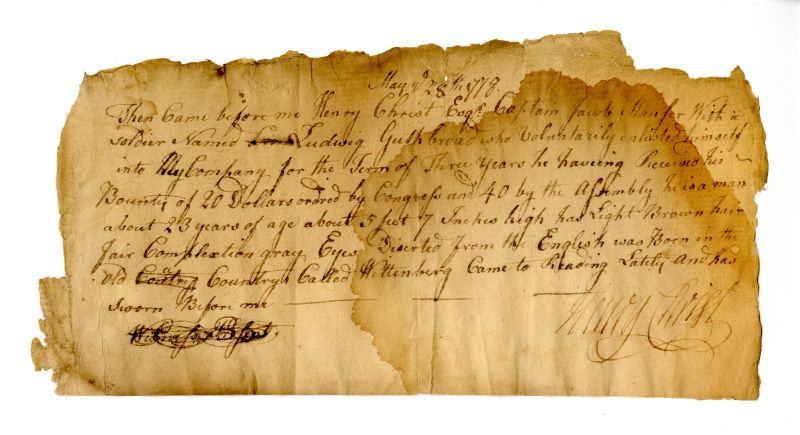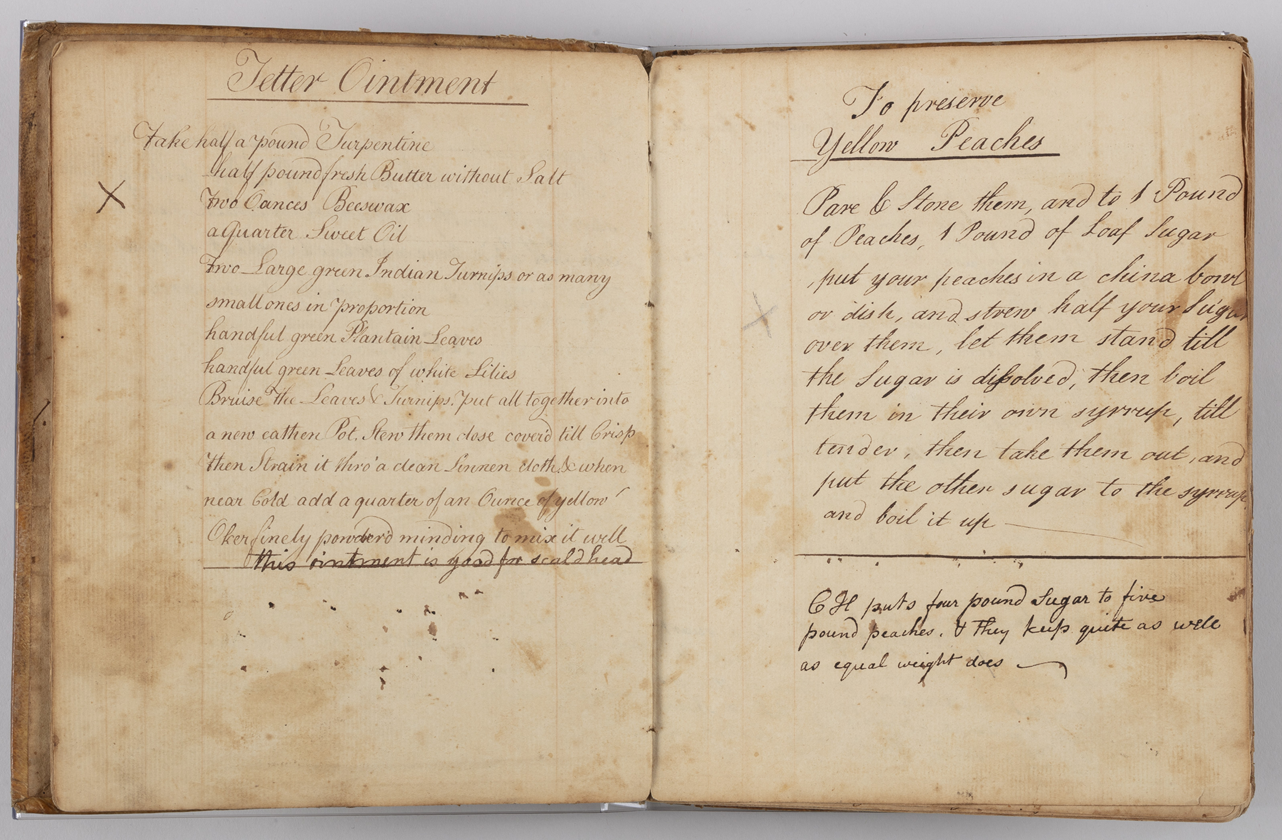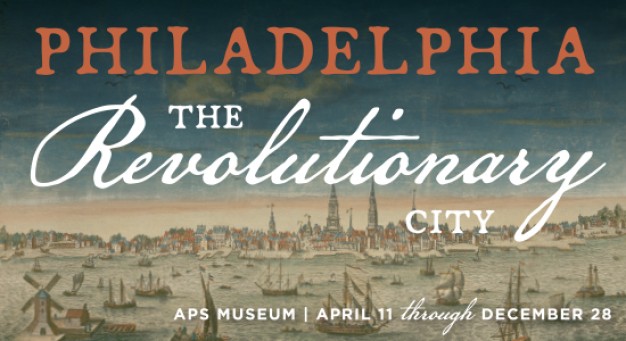Philadelphia, The Revolutionary City Opens April 11
Opening April 11, 2025, Philadelphia, The Revolutionary City, the new exhibition at the American Philosophical Society (APS), explores the experience of Philadelphians before, during, and just after the war for independence. The exhibition was inspired by the digital archive, The Revolutionary City: A Portal to the Nation’s Founding, a collaborative project with the APS, the Historical Society of Pennsylvania, the Library Company of Philadelphia, and a growing network of institutional partners to digitize revolution-era collections in a one-stop-shop for researchers and the general public.
“Both the timing and location of this exhibition are very intentional,” said APS CEO Patrick Spero, “This April marks 250 years since American colonists and British troops clashed at Lexington and Concord, and while events in Boston may have provided the spark for this revolution that changed the world, Philadelphia became the revolutionary city as the fight for American independence ran its course.”
The APS Museum is located in the Society’s headquarters in Philosophical Hall—yards away from the assembly hall where the Declaration of Independence was signed.
The documents and artifacts featured in Philadelphia, The Revolutionary City illustrate 18th-century Philadelphians’ varied experiences with the war, as well as insights into challenges and issues that Philadelphians of today will be able to relate to—anxiety over high food prices and shortages of certain items, the pain of political differences among friends and neighbors, and mixed feelings about a rapidly-changing city.

“This exhibition brings together documents and artifacts from across the region to explore how the American Revolution affected people on a daily basis,” said Michelle McDonald, Director of the APS Library & Museum. “The outcome of the war was far from certain, and the stories we tell are about a city in turmoil–as the world citizens were born into was turned upside down.”
Visitors to the exhibition will enjoy a multi-sensory experience—excerpts from letters and diary entries are available as recorded audio vignettes, bringing the writers’ thoughts to life. They will also encounter artifacts that reflect the many facets of 18th-century Philadelphians’ daily lives—well-worn recipe books from the home, trade cards and advertisements from places of business, and a young couple’s love letters. Other items mark important milestones, both joyful and perilous, including Hannah Marshall Haines’s wedding shoes, continental Army enlistment certificates, and an indenture agreement in which a man named John Francis indentures himself in exchange for his enslaved wife’s freedom. Finally, visitors, young and old, can try their hand at letter writing, a waning art in the current age of DMs and Tik-Tok videos.


The impact of Philadelphia, The Revolutionary City extends well beyond the gallery walls. An exhibition catalog has been published by the APS Press, distributed by the University of Pennsylvania Press. The Revolutionary City portal is available to anyone with an internet connection and as of April 2025 hosts over 6,000 unique objects and 48,500 pages from 101 collections at five institutions. Crowd-sourced transcription efforts are making these documents fully searchable and even more accessible to researchers and the interested public. Associated programming will include two scholarly conferences, “Revolutionary Saturdays” with hands-on activities for all ages during the summer, quizzo competitions, and more.
The exhibition will be open Thursday-Sunday from April 11 through December 28, 2025, with additional Wednesday hours in the month of July. The museum is located in the Society’s historic Philosophical Hall (104 S. 5th street) in the heart of Old City Philadelphia, adjacent to Independence Hall. Admission is free.

